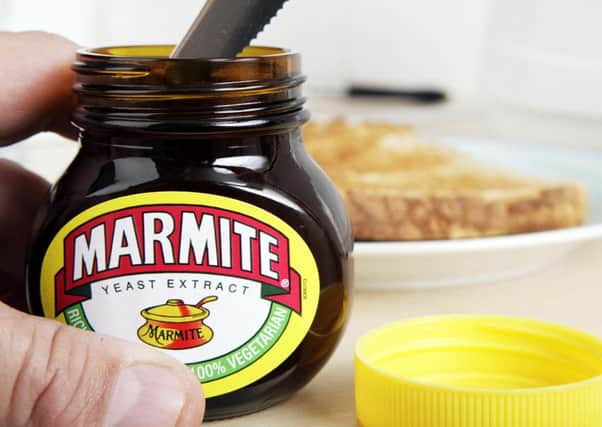Denmark close to overturning 3-year ban on Marmite


The Copenhagen Post reported that a risk-assessment application was being processed, and despite refusals to comment on individual cases, Anette Flensborg, a nutrition expert with food authority body Fødevarestyrelsen, said that the signs were promising.
She told the paper: “Out of the about 120 cases we process every year, around 92 percent are approved. But we have to check the security and we do so by a case-by-case point.”
Advertisement
Hide AdAdvertisement
Hide AdDanish food chiefs halted the sale and marketing of Marmite in 2011, due to the presence of added vitamin B12 in the spread.
Fødevarestyrelsen claim that adding vitamins or minerals to food must be approved before the product can be marketed in Denmark.
And David Darlington, the British expat who has been importing and supplying British and American food products to supermarkets in Denmark for over 10 years, is fighting to have the love-it or hate-it spread put back on the country’s shelves.
Any company wishing to sell the spread has to pay 8,900 kroner (about £950) to apply for a risk-assessment to be performed by Fødevarestyrelsen and, if the process is approved, the permission only applies to the company that paid for the initial assessment.
Mr Darlington told the Copenhagen Post: “If any other companies wish to apply to sell Marmite, then they too must pay 8,900 kroner to have exactly the same risk assessment carried out.”
Fødevarestyrelsen confirmed that it was standard practice for each company to shell out for a risk-assessment to be carried out but that it was looking into simplifying the rules so that one risk-assessment would apply to a number of companies.
Mr Darlington confirmed that he had tried to contact Unilever, who owns Marmite, to question why they were not paying for the risk-assessments, but had not received any reply.